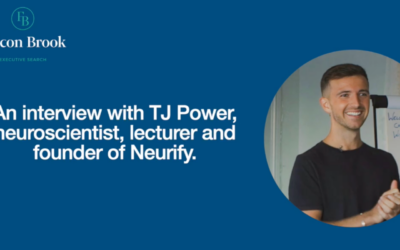PRIDE week has become a corporate fixture. Throughout June, the rainbow colours bring to life communications activity in organisations across all sectors.
Is this a good thing – or is it ‘rainbow washing’?
We spoke to Samantha Jayne Nelson, a plain speaking trans woman, champion of diversity, and a risk engineer with experience of working on oil platforms across the world to learn more.
What was it like growing up as a trans woman?
“I came from a shipbuilding and mining community in the North-East of England. During my formative years I could see the Blitz Kids and Boy George on the TV, but I also felt the weight of the north south divide. Being myself might have felt possible in London, but the capital might as well have been another country.
“I remember teachers putting a sign around my neck saying ‘boy’ because I wanted to play with the girls, and they didn’t like it.
“Then I was raised Roman Catholic. When I was about 12, I was told that the police kept a list of people like me and that I would be locked up if there was a murder or rape in the area.”
What attracted you to be an engineer?
“Struggling to find myself let alone my path made me different at school. This was long before I had the vocabulary and strength to publicly present as a woman. You see I never really fitted into any box. It made it so much harder to know who I wanted to be and what I wanted to do.
“I found myself attracted to engineering as there was the appeal of trying to figure out how things worked which was also about trying to understand how I worked. How do you fix things? How do you make things better? How do I fix myself and make myself better?
“I drifted into physics and maths where there were clear binary answers rather than the grey spaces. How do we break down a problem into bitesize chunks and then identify the building blocks to get to where we want to be? This process of thinking helped me find myself through adversity.”
How did your experiences as a trans woman affect your career?
“The first part of my career I presented as a man just on the boundaries of masculinity. I would say I was into rock music to explain why I was different – the long hair, tight jeans, scarfs and bangles – and that I had a passion for surfing. This gave me a tribal permission to be on the fringes of traditional masculinity.
“Distancing myself from stereotypical masculinity meant I didn’t have to be one of the boys. I was able to get away from it without having the spotlight shining on me. However, this non-conformist approach allowed me to look at things differently and I found myself excelling and being promoted quite quickly.”
How did you succeed in transitioning mid-career?
“I transitioned when I was quite senior, an Offshore Installation Manager. My leadership technique was all about honesty, transparency, and authenticity but I wasn’t being honest with myself. My head went into overdrive.
“I was lucky to find an ally, one of a handful of very good females in energy engineering. She spotted something wasn’t right and created a safe space where I could talk. That first conversation made me realise I had someone on my side that I could be open with. That was 18 years ago. I had used so much energy building this wall and wearing a mask. I was still judging myself.”
What have been your experiences since coming out as a trans woman?
“It is a disservice to the LBGTQ community to say that major multi-nationals have successfully created a consistently welcoming environment for everyone.
“Places like London are great – diverse, inclusive, starting to make quite substantial steps forwards and stay on the improvement path. People are listening, building networks, and changing the status quo.
“It looks very different out in the grass roots and far-flung operating centres. That’s why I am trying to embed diversity thinking into the offshore industry to help create a better environment for everyone everywhere.”
What is it like being an LGBTQ advocate overseas?
“I enjoy traveling. I was recently involved in a project in China, and I was excited. There is always time for new experiences, so I was planning my cultural social awareness journey.
“There isn’t an energy-producing country that I haven’t been to. I go outside the capitals to oil towns, platforms, and installations in places like India, the Middle East, South America and Asia. I see the other side of organisations, where PRIDE celebrations have little or no impact.”
What was it like being in China during the lockdown?
“It was the most arduous thing that I have ever done. The degree of the control upon arrival was like nothing I have seen. Everyone was in full haz mat suits, everyone wore masks all the time. I couldn’t fly direct from the UK. I had nine days of covid testing and isolation before I even left the UK.
“I was then sprayed down and tested when I arrived in China before being quarantined in a room for three weeks. Mine was tiny, there was no natural light and no wi-fi in the first week.
“Once a day there was a PCR test. Three times a day there was a knock on the door and a bag of Chinese food was handed over by a heavily protected hand. The food was very different from the UK versions of Chinese food.”
How did things change once you finished quarantine?
“The people are lovely, but there are huge cultural differences. It’s clearly authoritarian and the news outlets loop stories saying that Covid started in the US. People avoided us at all costs.
“I was the only western woman I saw the whole time that I was there. People never see anyone from outside China and there is a curiosity. Strangers would stop, stare and circle me in the street. I was very sensitive to this because of my background. The Western men with me seemed to be coping, but maybe they felt they couldn’t vocalise their issues and show weakness.
“Small things are really amplified when you find yourself under this kind of stress. Suddenly there was a lot of noise in the media against the Trans community back in the UK because of things that were being said at official levels. At times the situation would reduce me to tears.”
How easy is it to get support working overseas?
“It can be very hard because a lot of the support that should have been there – for example through UK websites – weren’t available to us because of firewalls. I was relying on HSE information that wasn’t relevant or didn’t really address the situation because it was so different, and the news channels don’t transmit outside of China.”
How have your recent experiences affected what you think corporates should be focusing on with initiatives like PRIDE?
“There has been a lot of virtue signaling. Corporates want to be seen to be in the LGBTQ space. But they are not making a tangible difference to people within their business who are struggling and facing discrimination.
“The challenge isn’t at the top. Senior teams are focused on diversity and sign off the policies and strategies. There needs to be empathy across the whole organisation. Corporates need to listen to what is happening on the ground and take steps to make positive change until there is consistency across the whole organisation.
“It’s often one passionate individual that gets things going. Then they leave and DE&I can become a veneer over an old boys’ club again.
“I say there is a rule of three. Get two women in a boardroom and they might compete. Three is a team and we start to work together to drive change. We support each other and act as allies and advocates together. It doesn’t feel so alone, and you can feel hopeful!



